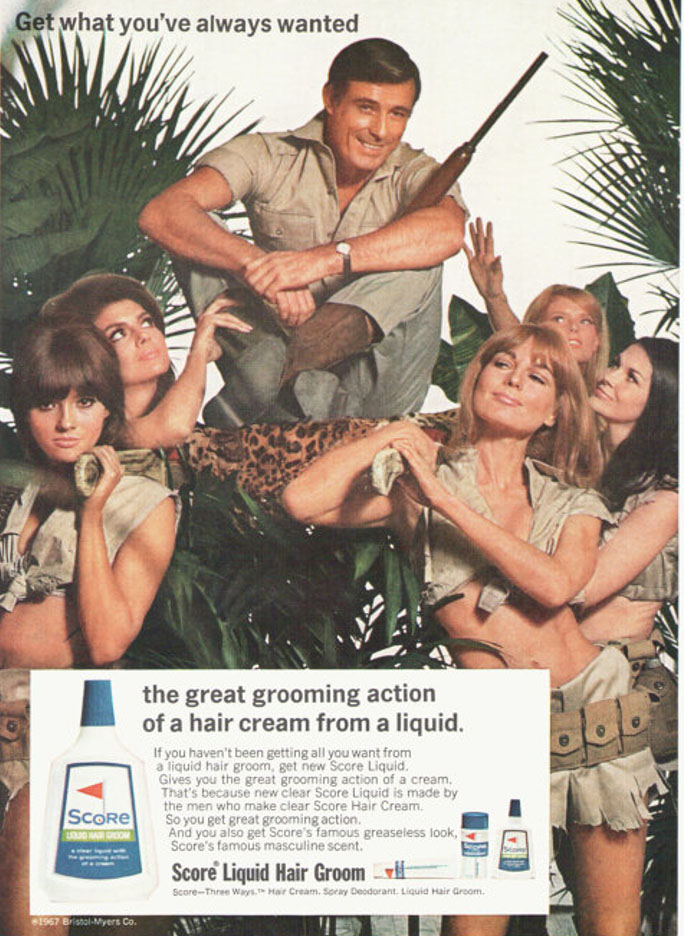
The mise-en-scene contributes the theme of male hierarchy and power over females, due to the position of the women looking like they are worshiping him. Their revealing outfits suggest that the male wants them exposed for his pleasure.
The trees and cheetah print referee to them being in a jungle. The sort of stretcher he is on also links with male heirarchy. The advert slowly tells a story with a beginning middle and end, and that before he used the product he was ‘greasy’ and smelt bad also not getting any attention from women and after buying and using the product, he is now transformed and he’s loved by women and worshipped which men want.
This advert communicates a negative view and opinion of sexuality, the tag line ”let what you’ve always wanted”, translates that the product only attracts women, this is demonstrated when the women are overjoyed when the mans hair is perfect as a result of using the product. The advert informs the gay community that this product only attracts women and it would be pointless to use it. The main aim of this product is not to look good to yourself but to the opposite sex, which for the LGBTQ community is useless.
The products reactionary representation of men and women link to the male hierarchy over women in the media and daily life. The date of this advert, 1963 explains the sexist reasoning behind it. The ideology of women being stay at home mothers and the stereotypical women cook and clean was still very much distinctive. Therefore advertising a product that shows women working hard to please the man, ie, holding him up on the stretcher teases the men that the product brings this. The distrigarding focus on women shows them in a negative and gullible light, and that we would do anything for them as long as they are happy. The only aspects of women that the advert show are those that are favourable to men are their bodies and their submissive tendencies, illustrating the voyeuristic tendencies of the patriarchy.
Furthermore less obvious aspects of representation are lack of the racial variety, there are no asian or black actors in the advert. This creates a message that the product is not for them and only for white people. The racist and lack of black representation was highly problematic in the time this advert was made. The cultural appropriation is highlighted by the exotic setting which reflects the colonialism when white people exploited and stole land from the black natives once again reinforcing the white supremacy idea.
In conclusion the variety of negative and morally wrong representations to the public in this advert shows that time have changed since 1963. The advert highly celebrates male patriarchy and the disregard for women and that their only meaning is to please and assist. The lack of representation for sexuality and race effectively creates a box for a desired human/person, white, straight and arian.
